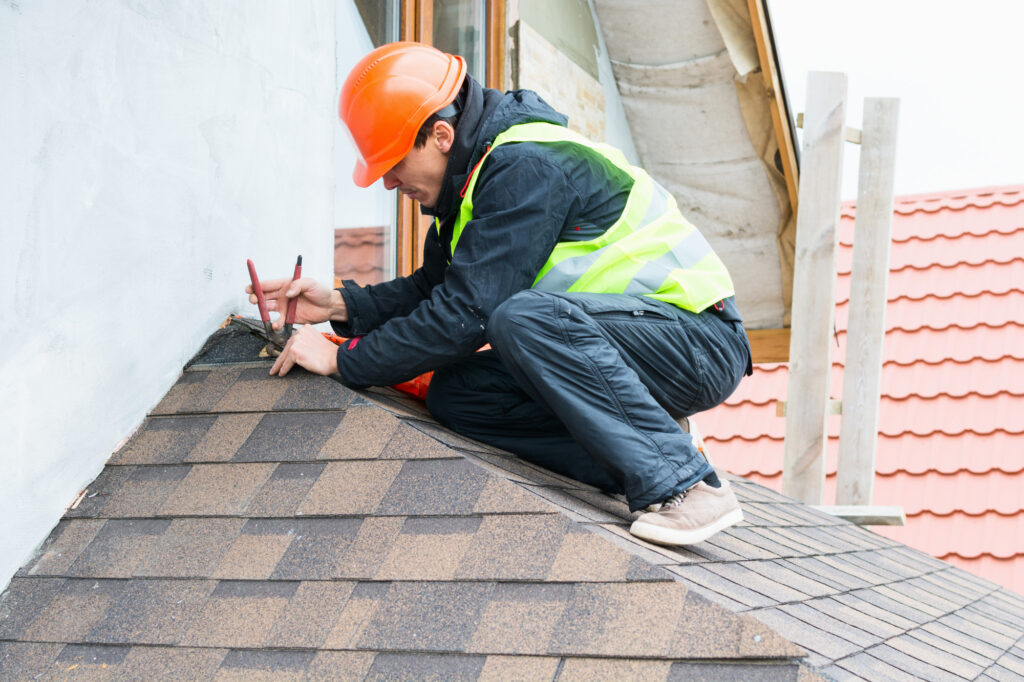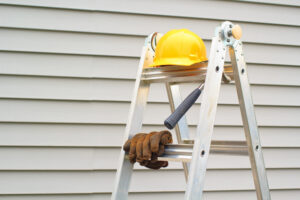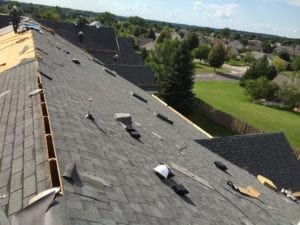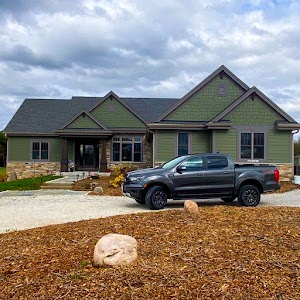Did you know that a well-maintained roof can last for up to 50 years?
Damaged roof shingles present themselves in drips and leaks. Others change color and become less attractive. If your roof has been in use for several decades and has signs of wear and tear, then you should start planning how you’ll replace it.
This guide will discuss vital tips on how to replace roof shingles. If you’re on a budget and would like to try a DIY replacement, read through it to know how to do it effectively and avoid mistakes.
Get a Roofing Permit
Most states require homeowners and business owners to have a roofing permit before installing or replacing shingles. If the house is large and is located in a densely populated location, the state’s surveyors inspect it before giving you the permit.
They also find out the possible risks during the replacement process and how you can avoid them. The permit, therefore, improves safety and adds value to the project.
You might also need building insurance in addition to the permit. If you don’t have the insurance, it’s better to call an already-insured roofing professional. The insurance hedges you against any risks that might arise during the roofing repair and replacement process.
Don’t Cover the Old Shingles
Most contractors make the mistake of covering the old shingles during the repair and replacement process.
Covering the old shingles facilitates the deterioration process of the new shingles. The two layers of shingles trap moisture between them, which causes rust and other types of damage.
If you want to reuse the old shingles, remove them first, and use them in other ways. Don’t overlap the two shingles in your roof to avoid causing further issues.
Match Your Shingles
The quality, color, and texture of shingles vary from one manufacturer to another. If curb appeal is a priority, take a sample of the old shingles to your supplier to get the exact shingles type.
Mismatching can make your roof uglier and lower the resale value of the house if you wish to sell it.
To prevent this, find a reliable supplier who consistently acquires shingles from the same manufacturer.
Check the Nails You Use
Decide on the right nails to use before you start the shingle replacement process. If the old nails on the roof are still in excellent condition, you can decide to buy the same ones.
But if you are replacing the entire roof and with a different kind of shingles, it will be imperative to change the nails, too. The ideal nails should be strong — and long enough to fit the shingles well.
Avoid using nails that are too small or too thin, or using nails without the top barbed shanks. If your house is located in a windy environment, ask an experienced roofing contractor to recommend the best types of nails to use.
Follow the Manufacturer’s Instructions
Every shingle manufacturer has a set of instructions regarding the installation process. These instructions reduce installation risks and also help users have a smoother experience.
It’s important to adhere to those rules, especially if you are doing the replacement job yourself. Deviation from those rules may shorten the lifespan of your new shingles. Even worse, the manufacturer may fail to offer a warranty in case of any damage or risk.
Don’t Forget the Gutter
A gutter is part of your roof. You may decide to remove it before you replace the shingles, or you may keep it. If you don’t remove it, you should clean it well when you’re done with the work.
To clean the gutters, remove the debris, twigs, and other particles that may affect the quality of your drainage.
You should also fix the sagging parts, cracks, and other defects. But if the gutter is too old for repair, a replacement can be an ideal solution to maintain uniformity in your gutters and new shingles.
Consider the Slope of the Roof
Understand the slope of your roof before you start to replace the shingles. If the new shingle doesn’t match the entire roofing slope, you will risk experiencing leaks and other roofing damages.
Most shingles require a 15-degree slope. Before you install, you should measure the current degree. Better yet, you can remove the entire roof and replace all the shingles afresh.
Ensure the Ventilation Is Enough
Every roof requires enough ventilation. Inadequate ventilation favors moisture retention, which translates to the formation of molds and mildew.
You can avoid the moisture issues by raising the attic when replacing your shingles. You may also install air vents to encourage the flow of natural air from the outside. But if your home is located in a windy environment, you should consult an expert to help you set the attic.
Leaving a big space in such an environment can allow the strong winds in, damaging your roof within a short period.
Seek Help
The last important tip for shingles replacement is to seek help. Many roofing experts in every state can help you. The experts can inspect your shingles to identify the underlying issue. They can also recommend the right shingles to use.
If you are determined to learn the shingle replacement process, ask the contractor to guide you. Do the job alongside the expert, too, to learn a few tricks.
Not only will you be safer, but the outcome will also be more appealing if you hire a roofing expert.
Know When and How to Replace Roof Shingles
A roof is one of the most critical components of a house. It protects the internal elements of the house and also adds beauty to the building. As a homeowner, you should keep an eye on your roof to know when the shingles need a replacement.
You should also learn how to replace roof shingles on your own in case of emergencies. Nevertheless, you should have the contacts of a reputable roofing contractor to get help when need be.
Heins Contracting is an established firm that offers roofing and siding services to both residential and commercial buildings.
We serve our customers with integrity, honesty, and transparency. Our other services include storm damage repairs and gutter guard damages. If you have a problem with your roofing, gutters, or siding, contact our team to help.







